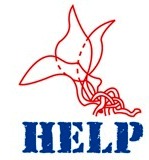Cause Area
Primary Sectors
Secondary Sectors
Financials
-
2023
Total IncomeRs.9,816,822Total ExpensesRs.7,229,472Non Program ExpensesRs.712,650Program ExpensesRs.6,516,822Tip: Click on any value above to exclude it. -
2024
Total IncomeRs.10,423,933Total ExpensesRs.11,520,430Non Program ExpensesRs.1,125,000Program ExpensesRs.10,395,430Tip: Click on any value above to exclude it.
Geographies Served
Programs
-
Livelihood Programmes
District
Prakasam
Krishna
Guntur
NTR
Palnadu
Bapatla
States
Andhra Pradesh
HELP works to ensure that people find an increase in income through livelihood generation activities. It conducts job-oriented skills training for young girls in trades like tailoring, computer operations, four-wheeler driving and jewellery making among others and has also set up a revolving fund, which would help the women in times of financial need.
The women who require funds would borrow from the fund and would invest in income generation activities like small petty busineses and tiffin centres, paying back later with a small interest. This would keep the fund alive and all of the women are benefitted from increased incomes.
-
Survivors Leadership Programme
District
Prakasam
Krishna
Guntur
NTR
Palnadu
Bapatla
States
Andhra Pradesh
An invaluable resource for the curriculum has been VIMUKTHI, a group of people who have been victims of sex trafficking or commercial sexual exploitation. In 2015, the joint venture with VIMUKTHI commenced. With over 650 members, the collective has become a platform for survivors to battle stigma both at the family and community levels in addition to advocating for justice. By identifying potential survivors, preparing them, and supporting survivor-led initiatives as change agents, this program improves the leadership of survivors.
-
Kaarya, VIMUKTHI and Caring Connections
District
Krishna
Guntur
NTR
Palnadu
Bapatla
States
Andhra Pradesh
Through the Kaarya program, victims of sexual exploitation and trafficking can learn how to start and run small enterprises and live honorable, dignified lives. Supported by financial aid, training, and facilitation, survivors of trauma, sex trafficking, and stigma can independently establish and run micro-businesses that help them combat stigma in the community, stand in for other victims in their communities, and combat abuse at home, in the community, and among stakeholders.
vimukthi is a leadership development program for victims of human trafficking that focuses on empowering survivors through peer support groups and the collectivization of survivors in order to increase capacity, resilience, and healing.
Caring Connections is a program designed for physical, psychological, and physical healing as well as health services. bolster community-based organizations' (CBOs) social workers' ability to carry out survivor-centered and rights-based rehabilitation and recovery initiatives. -
Children Empowerment for Getting Out of the traditional prostitution
District
Prakasam
Krishna
Guntur
NTR
Palnadu
Bapatla
States
Andhra Pradesh
This programme in partnership with DASRA sets out to save girls from the evil of exploitation and getting pushed into prostitution. It works against the tradition of the Dommara / vaddera community where post-puberty, girls are dedicated as sex workers, abused and exploited leading to their dropping out of school. The programme partners with law enforcement agencies and creates awareness in communities about this malpractice.
Vulnerable girls from these communities are grouped into youth clubs and are provided training on child rights, education, training on advocacy, vocational training, and community sensitisation and are led to participate in child-led interventions empowering them against this practice and exploitation.
Impact Metrics
-
1872 Survivors Received Safe Space
Program Name
survivors provided with access to safe space
Year-wise Metrics- 2021-22 34
- 2022-23 48
- 2023-24 26
-
1,423 Survivors Rehabilitated
Program Name
survivors rehabilitated
Year-wise Metrics- 2021-22 25
- 2022-23 15
- 2023-24 21
-
2,750 Children Prevented From Prostitution
Program Name
children prevented from prostitution
Year-wise Metrics- 2021-22 22
- 2022-23 17
- 2023-24 15
-
3,870 Children Recived Education Support
Program Name
Formal Education Support (Books, Stationary, Uniform, Tuition Fee, School Bag)
Year-wise Metrics- 2021-22 145
- 2022-23 110
- 2023-24 121
-
450 Victim Families Received Alternative Livelihoods
Program Name
Victims Families Who Increased Their Income Through Additional Livelihood Support
Year-wise Metrics- 2021-22 25
- 2022-23 45
- 2023-24 32
-
275 Survivors Received Support in Their Crisis Period
Program Name
CRISIS RESPONSE
Year-wise Metrics- 2021-22 20
- 2022-23 28
- 2023-24 35
Registration Details
-
PAN Card
AAAAS2747P
-
Registration Number
133/1993
-
CSR Form 1
CSR00035056
-
80G
AAAAS2747PF20085
-
12A
AAAAS2747PE20160
-
FCRA
010330068
About
-
Headquarters
Ongole, Andhra Pradesh
-
Since
1993
Impact
7,250 Children rescued from Begging, Child labour, abuse & Exploitation 1,452 victims rescued from human trafficking / sex trafficking 1,872 victims provided with accesses to safe space 1,423 survivors received rehabilitation services 2,750 children prevented from second generation prostitution 1,245 children of sex workers educated 5,750 police personnel trained on children rights and Human trafficking 52 Traffickers convicted 42,265 women & families provided with food, mental health counselling in COVID period 1,145 survivors connected with Government IDs 897 survivors linked with SHGs
Vision and Mission
HEL's vision is to create self-reliant and empowered rural communities, with a mission to implement sustainable development programs that improve quality of life.
Political & Religious Declarations
-
Political Affiliation
-
Religious Affiliation
Location
-
Offices in Cities
Gorantla
Other Details
-
Type
Non-profit
-
Sub Type
Society
Website
Technology Adoption
-
SOC 2 Compliant
No
-
Financial Management
-
Beneficiary Management



